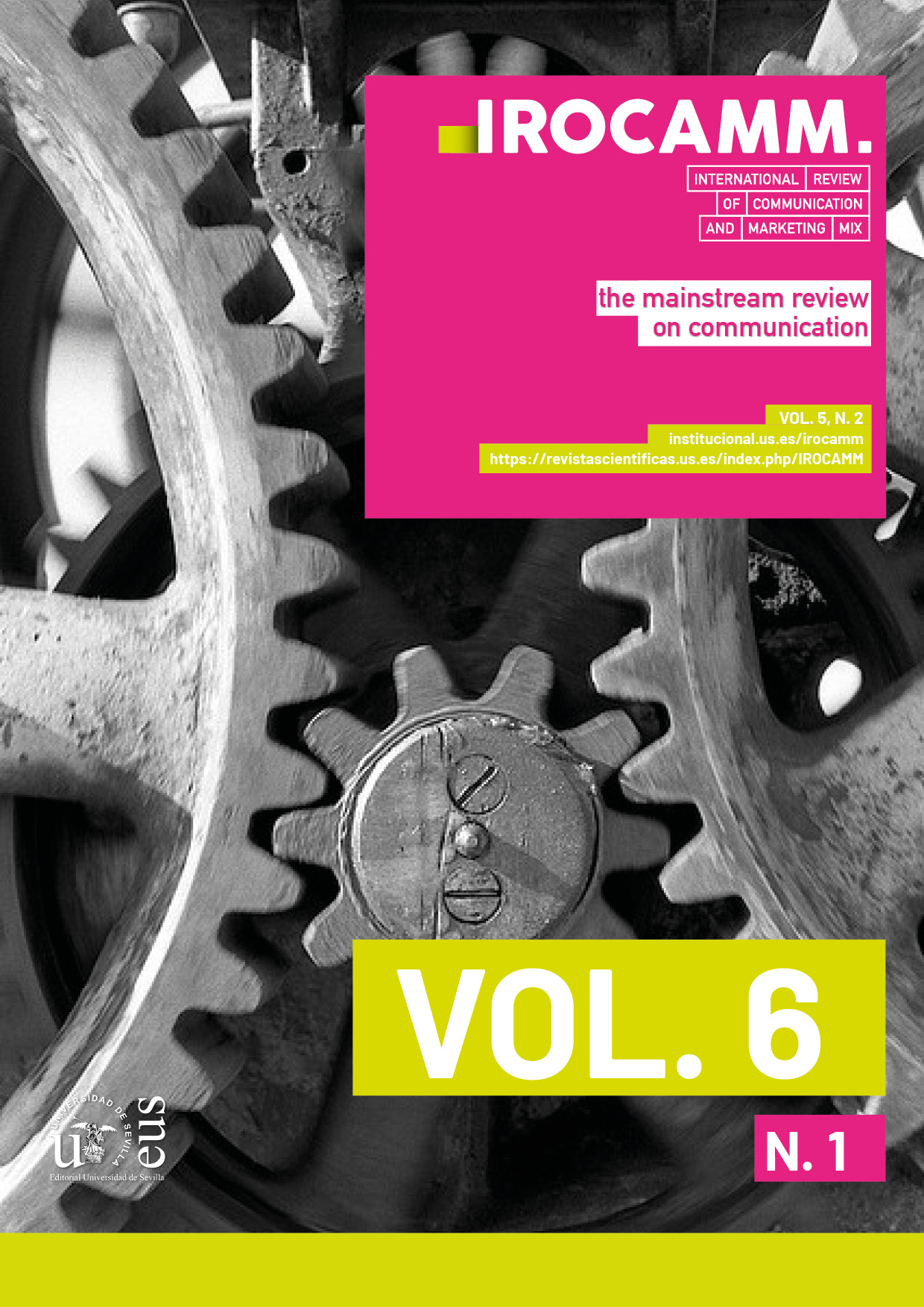Abstract
The increase in people connected to the Internet and social networks has caused significant changes in the political marketing practices of election campaigns in Brazil and the world. This article is structured from a historical context of the evolution of marketing in Brazil. We have two specific objectives: (i) briefly present the historical and political context of marketing in Brazil from the 2013 manifestations and (ii) understand the panorama of the 2022 presidential elections. The theoretical framework that sustains this work are the studies on political marketing Albuquerque (1998) & Gomes, Fernandes, Braga (2010), Carvalho (2020), Elis (2020), Reis & Silva (2009). The methodology used is empirical, based on bibliographic (Gil, 2003), and the method is the hypothetical-deductive. The results achieved confirm that presidential candidates in Brazil use social networks as a way to share their values in their political campaigns, hoping to influence their voters' voting decision and explaining the importance of digital marketing in political campaigns.
References
Albuquerque, A. (1998). “Spots Políticos: Americanização da Propaganda Política Brasileira?”. Textos de Cultura e Comunicação, 39. pp. 113-131.
Braga, S. (2010). “Podemos ter um(a) nov@ Obama? Perspectivas para o Uso da Internet no Próximo Pleito Eleitoral Brasileiro”, Em Debate, 2 (2).
Carvalho, P. R. (2020). Conexão informacional entre as campanhas eleitorais: análise de estratégias e postagens no Facebook. Dissertação de Mestrado, Instituto brasileiro de informação em ciência e tecnologia - IBICT - Universidade Federal do Rio de Janeiro, Rio de Janeiro -RJ.
Castells, M. (1999). A Sociedade em Rede. Paz & Terra.
Coelho, P., M., F. & Costa, M., R., M. (2014). O Advergame Político ?Andry Hadd?: discutindo a carnavalização bakhtineiana e a narratividade subjacente. Revista Hipertexto, v. 4, p. 53-72.
COELHO, P., M., F. & HILDEBRAND, H. R. (2021). Estratégias de criação de deepfake: uma análise semiótica. TECCOGS: Revista Digital de Tecnologias Cognitivas, v. 23, p. 119-134.
Costa, T. (2019). Quais são as redes sociais mais usadas no Brasil em 2019? Disponível em rockcontent: https://rockcontent.com/blog/redes-sociais-mais-usadas-no-brasil/ (Acesso em 14 Dezembro de 2022).
Ely, D. (2018). A máquina de campanha de Bolsonaro pelo WhatsApp.l. Disponível em Gauchazh: https://gauchazh.clicrbs.com.br/politica/eleicoes/noticia/2018/10/a-maquina-de-campanha-de-bolsonaro-pelo-whatsapp-cjnb0prtp05df01rxdx7k9mqc.html (Acesso em 14 Dezembro de 2022).
Gil, A. C. (2013). Como elaborar projetos de pesquisa. 7ª. ed. Atlas.
Gomes, W., Fernandes, B., Reis, L., & Silva, T. (2009). ‘Politics 2.0’: a Campanha Online de Barack Obama em 2008. Revista Sociologia Política, 17.
Jesuíno, F. (2020). Os desafios do Marketing Digital no futuro. Disponível em PME Magazine: https://pmemagazine.sapo.pt/os-desafios-do-marketing-digital-no-futuro/ (Acesso em 14 de dezembro de 2022).
Lock, M., & Baldissera, R. Comunicação Política On-line: Estratégias de Administração da Visibilidade no Ambiente da Web 2.0, artigo apresentado no IV Abracorp, 2010. http://www.abrapcorp.org.br/anais2010/ GT6/GT6_Lock.pdf.
Lynch, C., & Cassimiro, P. H. (2022). O populismo reacionário: ascensão e legado do bolsonarismo. Contracorrente.
Marinho, R. (2018). Marketing Político digital - Na era das redes sociais. MK Editora,
eBook Kindle.
Nobre, M. (2022). Limites da democracia: de junho de 2013 ao governo Bolsonaro. Todavia.
Singer, A. (2021). A reativação da direita no Brasil. Opinião Pública, 27(3), 705-729. https://doi.org/10.1590/1807-01912021273705.
Sorj, B. (2014). Socialização do cuidado e desigualdades sociais. Tempo Social, 26(1), 123-128. https://doi.org/10.1590/S0103-20702014000100009

This work is licensed under a Creative Commons Attribution-NonCommercial-ShareAlike 4.0 International License.
Copyright (c) 2023 IROCAMM - International Review Of Communication And Marketing Mix


